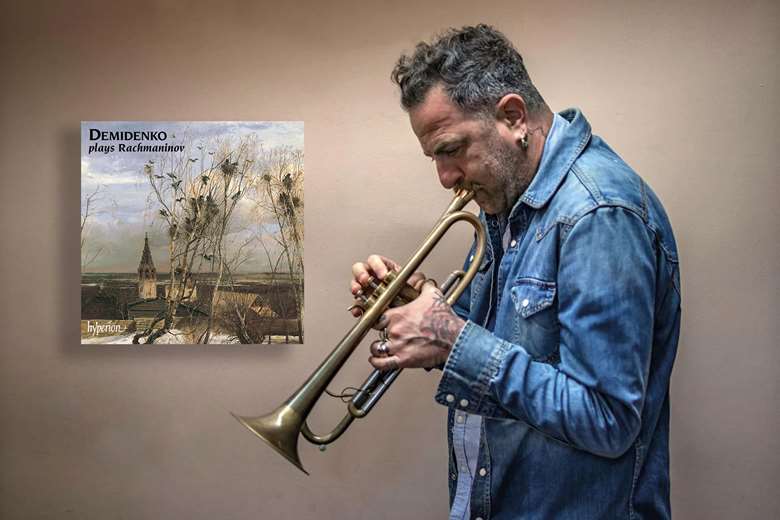Life-changing recordings: Avishai Cohen on ‘Demidenko Plays Rachmaninoff’
Thursday, February 20, 2025
What’s the album that changed your musical outlook? After much deliberation, the trumpeter Avishai Cohen tells Brian Glasser that it’s a classical record by a Russian concert pianist…

I had chosen an album - and then 10 minutes ago [before the interview], I thought of a different one! I had originally picked Aphex Twin, Selected Ambient Works, Volume 2. Of course, a more expected choice would have been from within the jazz world: there was Workin’, the Miles Davis Quintet, the Gerry Mulligan Quartet - with Art Farmer, not Chet Baker), Louis Armstrong and Duke, Louis and Ella - but there were so many options that I couldn’t pick just one!
Instead, I thought to go with not what changed me as a kid or young man, but something from more recent years: pianist Nikolai Demidenko playing Rachmaninoff – the ‘Etudes and Tableaux’. I heard it about a decade ago, when I was about 36; and got hooked on it. Later on, I heard other versions of the ‘Etudes’, and Demidenko might not even be my favourite; but it happened to be the one that I fell upon first and it was on rotation for years! The music blew my mind. I don’t remember why I listened to it in the first place; and it was the first classical piece that had done that to me – I kept on finding new elements and it kept on taking me on an unpredictable emotional journey. It was so free and so different - it was not Chopin, not Beethoven, it was so wild and so fresh, and very modern.
“It was so free and so different – it was not Chopin, not Beethoven, it was so wild and so fresh, and very modern”
I grew up also playing classical music but at that time I was not into Rachmaninoff - the piano concertos were too heavy, and that was all I knew. But this music altered my understanding of what a composition can be, the unpredictability of it - so it changed me as a writer.
In 2016, I started recording for ECM, and a lot of people said, ‘Oh - your writing has changed because of ECM.’ But it was because of Rachmaninoff a bit earlier. I was playing in the SF Jazz Collective back then and my arrangement for ‘Inner Urge’ started with a Rachmaninoff quote. So at my first ECM recording, Into The Silence, I was still immersed in this Rachmaninoff period.
As a young man, I felt way more at home in jazz. I saw the difference with friends back then - for them, when they had to improvise, they’d freeze. For me, it was the opposite - written parts scared me, soloing was freeing and natural. When I was in a youth orchestra we went to Switzerland, and I played with a big conductor, Kurt Masur. I was so afraid to miss a 16th note, his looks were so scary!
But while we were there, we took a train to see Charlie Haden and the Liberation Orchestra - me and all the bass players in the orchestra! I liked it so much.
Now, 30 years later, and partly thanks to Rachmaninoff, I’m not afraid of classical music any more! On my last album, the shape of it is more classical. I’m happy to get the shape from any world that I want nowadays.
So Rachmaninoff affected my composition, not my trumpet playing. It hasn’t been a conscious decision, but I find myself attracted to longer scope compositions that are suite-like. I like to tell a story in a larger scale rather than in a tune. It goes back to Into The Silence: I knew that I wanted to bring in music that was recent, as opposed to bringing a tune I’d always wanted to record but never got round to or whatever - I’ve got hundreds of those. I wanted to bring it from now, that became the most important thing to me. We hadn’t played together as a group before; and I was playing it for the first time in the studio. Everything was new.
From that beginning, it led to wanting to create bigger pieces rather than albums of individual songs. I wanted things with connections, where each part has elements connected to each other. I like listening to music like that. It takes it beyond solos - the importance becomes composition. Solos are just there if needed. Generally, I don’t like playing solos any more - except when I’m playing live, because then it’s about where we can take the recorded music to. But in the studio, solos are the last thing on my mind. So I’m still exploring the things that began with Rachmaninoff!
Avishai Cohen’s latest album is Ashes To Gold (ECM)